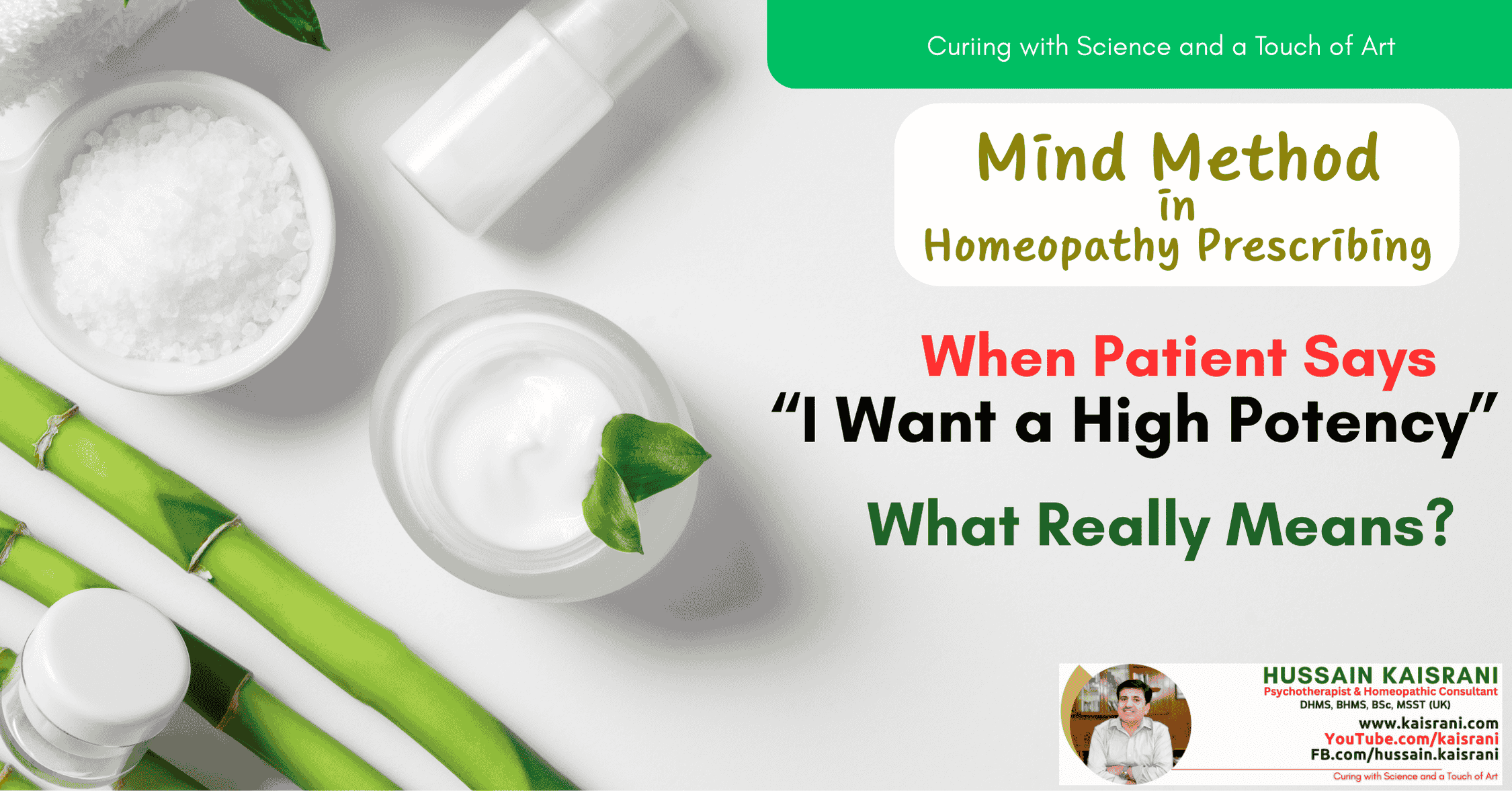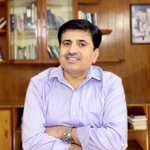“I Want a High Potency” What Really Means
In homeopathic practice, especially when using the MIND METHOD or Sehgal Method, also known as the Revolutionised Mind Method; a patient’s words are more than casual statements. They are considered vital expressions of the patient’s mental and emotional state, offering insight into their internal world.
One commonly heard phrase is:
“I want a high potency.”
At first glance, this might sound like a technical request. But within the Sehgal School of Homeopathy, this is not simply about dosage. Instead, it is a doorway into the patient’s core mental experience; a reflection of fear, urgency, control, or lack of confidence.
Let’s explore how to understand and translate this into repertorial rubrics and homeopathic remedies, using the Sehgal Method’s focus on mind symptoms.
What the Statement Really Means
The statement “I want a high potency” is not evaluated literally in the Sehgal approach. It must be decoded based on:
- Tone of voice
- Facial expression
- Urgency or calmness
- Context of the statement
The patient might not be asking for a specific dilution—they might be expressing:
- Distrust in mild remedies
- A desire for strong, immediate action
- A fear that nothing else will work
- A tendency to control the treatment process
- Or even a hidden lack of self-confidence
Mental Rubrics Derived from the Statement
Depending on the emotional context, the following Mind rubrics from the repertory (often used in the Sehgal Method) may apply:
| Rubric | Interpretation |
|---|---|
| Mind – Power – Desires | Patient craves effectiveness, strength, or authority |
| Mind – Dictatorial | Tries to control the physician or treatment plan |
| Mind – Anxiety – Health, about | Fear that weaker remedies won’t help |
| Mind – Hurry – In everything | Urgency to see results |
| Mind – Impatience | Intolerance for delay |
| Mind – Confidence – Want of self-confidence | Insecurity masked by forceful statements |
Possible Homeopathic Remedies
Several remedies can correspond to this mindset, depending on the exact tone and context of the patient’s demand. Here are some commonly indicated ones:
1. Arsenicum Album
- Mental State: Anxious, perfectionistic, fearful of inefficacy
- Expression: “Only something strong will work. I’m scared this won’t help…”
- Key Rubrics: Anxiety about health, restlessness, fear of death
2. Nux Vomica
- Mental State: Controlling, impatient, sensitive to inefficiency
- Expression: “Give me the highest potency now – I can’t wait!”
- Key Rubrics: Dictatorial, impatience, anger when contradicted
3. Sulphur
- Mental State: Intellectual pride, superiority, distrustful of others
- Expression: “Lower potencies are useless – I need real medicine.”
- Key Rubrics: Critical, egotism, lack of confidence in others
4. Lycopodium
- Mental State: Insecure yet assertive, overcompensates for inner doubt
- Expression: “Of course I need a strong dose – I can handle it.”
- Key Rubrics: Arrogance, fear of failure, want of self-confidence
5. Veratrum Album
- Mental State: Dramatic, power-seeking, may express moral or grandiose ideas
- Expression: “Only powerful remedies are for people like me.”
- Key Rubrics: Desire to command, delusions of grandeur, religious fanaticism (if present)
The Sehgal Method Principle
In the Sehgal Method, remedy selection is not about interpreting physical symptoms, but rather allowing the mind to speak through the patient’s language. The practitioner does not interpret – only observes.
Every sentence the patient speaks is seen as a direct expression of their mental state. The phrase “I want a high potency” becomes a mirror of the inner self, not a request to be acted upon at face value.
Final Thoughts
If you hear a patient say “I want a high potency,” pause and listen more deeply. What do they fear? What are they trying to control? What belief do they hold about healing?
In the Sehgal Method, these questions guide you; not to the bottle, but to the mind, where the true remedy is found.

